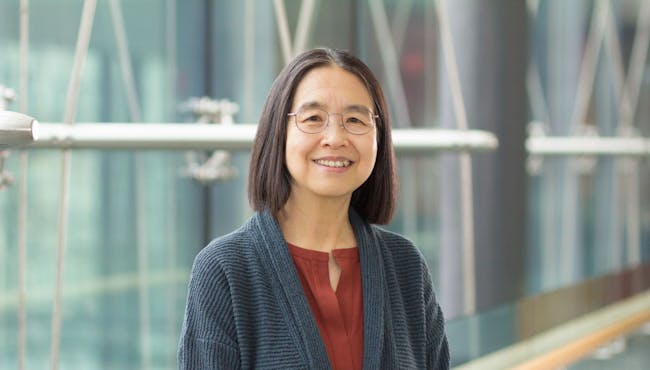
The Wu laboratory studies how chromosome behavior and positioning influence genome function and evolution, with implications for gene regulation, genome stability, and human diseases. Using genetic, molecular biological, computational, and imaging tools, they examine structural and functional aspects of chromosome organization, with particular emphasis on the relationship between homologous chromosomes, such as somatic (nonmeiotic) homolog pairing, as well as genome compartmentalization, telomeres, DNA repair, and sequence ultraconservation. As part of these efforts, her group has developed a variety of technologies, including Oligopaints for in situ visualization of DNA and RNA using fluorescent in situ hybridization (FISH), homolog-specific Oligopaints (HOPs) for distinguishing maternal and paternal chromosomes, OligoSTORM and OligoDNA-PAINT for imaging the human genome at super-resolution via single-molecule localization microscopy, and OligoFISSEQ for genome-wide imaging via in situ sequencing.
Ting Wu is also a Professor of Genetics at Harvard Medical School, PI of the Center for Genome Imaging, and a non-equity holding co-Founder of Acuity Spatial Genomics, now part of Bruker Spatial Genomics. She has been the recipient of an NIH Director’s Pioneer Award for her laboratory’s work on genome organization, an NIH Director’s Transformative Research Award for work on sequence ultraconservation, and a Center of Excellence in Genomic Science (CEGS) award for developing methods to image human genomes at super- resolution. She is also Director and co-Founder of Personal Genetics Education and Dialogue (PGED), which promotes awareness and dialog about genetic technologies in diverse communities regardless of their socioeconomic, cultural, ethnic, educational, and religious backgrounds.
